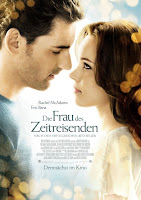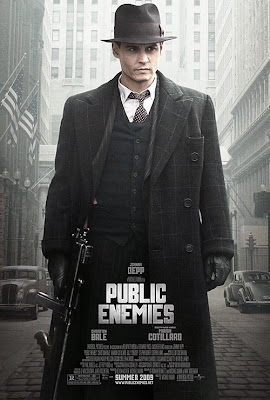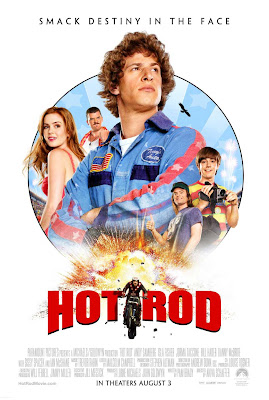
My reviews have become a little more sparse of late, more sparse than I’d like. The reason is not that I haven’t seen anything I’ve liked. Quite the contrary – I have half written reviews of three films that I thoroughly enjoyed, two of which I think are true greats, sitting unfinished on my hard drive for a couple of weeks. The reason they are unfinished is not because I didn’t enjoy them, no, but because they haven’t made me think. It’s been a while since I walked out of the cinema, thinking the film over and over in my head, slotting all the pieces into place – since Moon, in fact. They haven’t consumed my thoughts for hours, or even days afterwards. The Prestige, however, does.
What follows here will come in two sections. The first will be spoiler free, the second will not, and will be less review than discussion. Please do not read the second section unless you have seen the film, you will be spoiling a true classic for yourself.
The Prestige is the film that Christopher Nolan made with his brother Jonathan in between Batman Begins and The Dark Knight, starring Hugh Jackman and his Batman stars Christian Bale and Michael Caine. It concerns a bitter rivalry between two stage magicians, Rupert Angier, aka The Great Danton (Jackman) and Alfred Borden, aka The Professor (Bale), at the turn of the 20th Century.
The performances all around are nothing short of superb, with Jackman the best he’s ever been, before or since. The myopic, destructive fire of vengeance burns deep within Angier, a fire that eventually consumes him, and it is brilliantly realised by Jackman. Bale is equally great as Borden, whose complex, determined character cannot be fully comprehended until the last moments of the film. What is interesting about the rivalry between the two is that there is never any doubt but that Borden is the better magician, but equally that Angier is the better showman. It is in wishing to possess the others skill that is the undoing of both.
The supreme achievement of The Prestige is to be a film with lots of magic tricks, but the film is not about the tricks. But while you’re focused on trying to figure out the trick over here, the film is performing the real trick over there. The film is not about the tricks, the film is the trick. (If that makes no sense, go watch the film and re-read it – it should fall into place.)
It can be a little difficult to follow the shifting timelines at first, but stick with it and you will be rewarded with one of the most underrated gems of the decade. Simply superb. A+.
*** Here starts the second section, so here be spoilers. ***
One of the most wonderful things about the film for me is the Angier copies. I say copies and not clones, because there is a subtle, but hugely important, difference between the two. Clones are not the same person. A clone does not retain the memories of the original – they are genetically identical, but are different due to experiences and development. Clones are like identical twins.
The copies are just that – complete and total copies, two of the same person. Same memories, same experiences, same everything. The concept of original and copy is irrelevant – as both are identical in every way, they are equally both the copy and original.
So, when Angier walks to the machine, wondering whether he will be the man in the box or the prestige, he fails to realise that he is both eventualities in one; that when he steps in the machine, he will fall below the stage and drown and walk out to reveal himself to the audience. Obviously, only the prestige survives to remember this, so to him, it does feel like he is taking his life in his hands each time, but it is only this eventuality played out over and over again. It is, in fact, inevitable that at the end, there will be one copy left who will have the memories of having experienced the entire thing; but the question of whether or not it is the original Angier is irrelevant. The notion of original no longer makes sense.
Compare this to the film’s “clones”, if you will – Borden and Fallon, Fallon and Borden. As twins, they are genetically identical, but there experiences make them different. Look at the women they love. Look at their missing fingers. Look at their relationship with each other. They are two men masquerading as one. They only live as Borden, Fallon is an empty shell, a disguise, a hiding place. When one of them dies, one of them truly dies – a distinct personality is lost. That is not so with Angiers.
So I thank you for granting me this indulgence of sharing with you some of the things that consume my mind every time I watch The Prestige, and I leave you with this observation: the only trick not revealed in the film is that of Nicoli Tesla. After all, like Cutter says, he has done what magicians only claim to do. Real magic.
The Prestige
Review by
Dibbler
on
Friday, September 11, 2009
9
Reader Comments (so far). Feel free to add yours!
![]()
Film: The Prestige
Gran Torino

Clint Eastwood, directs, produces and stars in what be his final work as an actor. He plays Walt Kowalski, a Korean War veteran who has just been widowed. When we first meet him, he is standing bolt upright beside his wife’s coffin, channelling Harry Callaghan as he snarls at his grandchildren, who really couldn’t care less their grandmother is dead – his granddaughter pulls out her phone at the service. Shortly after, it becomes perfectly clear that Walt has just as much difficulty relating to his two sons as his grandchildren, muttering “Would it kill you to buy American?” as they drive off in their Toyota.
Alone, sitting on his porch, Walt laments that his neighbourhood is no longer filled with other working class Americans like him: “Why’d all these gooks have to move into the neighbourhood?” But when he accidentally becomes a hero to the Hmong people of the area by chasing away a local gang (“Get off my lawn” was never so menacing), Walt realises that he has more in common with these people than with his own family.
One of the singularly most impressive things about Gran Torino is sheer volume and variation of racial slurs that Walt manages to use: gooks, chinks, slopes, spooks, zipperhead – you name it, Walt uses it. These, combined with Eastwood’s impeccable delivery, are a sure-fire recipe for hilarity, bizarrely making what is a genuinely very touching film, also one of the funniest in recent memory.
Which leads us, naturally, to the real force behind Gran Torino: Clint Eastwood. Watching him hold up three black corner boys with nothing more than his hand pointed like a gun is one of the singularly funniest and most powerful scenes I have ever seen in a film – a very tiny part of your brain thinks that, somehow, Clint Eastwood could actually shoot you with his finger if he wanted to. Watching him spit bile at one of the gang members that hassle Thao as he pummels him in the face reminds you that Eastwood, when he wants to be, is still the most commanding man on screen.
Gran Torino, then, is a superb little film with a monumental performance from one of cinema’s finest actors. If it is to be Eastwood’s last hurrah as an actor, then what a hurrah it is. The ending may surprise you, or even sit a little funny in your mouth as the credits roll, but give it a little time and you’ll realise it’s the only way that makes sense. A.
Review by
Dibbler
on
Saturday, August 22, 2009
5
Reader Comments (so far). Feel free to add yours!
![]()
Film: Gran Torino
This Month I Won't Be Watching…
Bandslam

Ok, I know I’m not the target audience for this kind of film, but don’t think that means I don’t get to shit all over it!
No wonder kids these days are supposedly dumber than ever – if you had this kind of crap rammed down your throat by a corporate marketing machine with an operating budget bigger than the GDP of a mid-sized African nation, you’d be thick as shit too. Hell, at least this way the poor little bastards don’t have to be aware of the hell they’re being put through.
Enjoy your mindless oblivion, kids!
The Time Traveler’s Wife

 I’ve heard reports that this one may not be half bad, but it deserves a spot here just for the sheer fucking shamelessness that this film goes after what I like to call “The Notebook” market.
I’ve heard reports that this one may not be half bad, but it deserves a spot here just for the sheer fucking shamelessness that this film goes after what I like to call “The Notebook” market.The Notebook is, of course, a big steaming pile of shit that burrows itself into the emotional control centre of the female brain in pretty much exactly the same way that Crank 2 burrows into the “kick the shit out of stuff” centre of the male brain. Like The Notebook, The Time Traveler’s Wife also stars Rachel McAdams; and just in case there were any people out there who weren’t certain about the links, check out these posters!
Congratulations, marketing fucks, you just won my eternal fucking contempt.
The Ugly Truth

Well, the ugly truth is that I would rather turn my head into a Pinhead from Hellraiser costume using nothing more than some rusty nails and a dull spoon than watch this giant, dangling horse cock of a movie. To everyone who made this film: congratulations, you got paid, and in the process you managed to make the world just a little bit worse of a place to live. Thanks a lot, you soulless cunts.
Review by
Dibbler
on
Saturday, August 15, 2009
4
Reader Comments (so far). Feel free to add yours!
![]()
Public Enemies

Johnny Depp stars as John Dillinger, the legendary American depression-era bank robber, in the Michael Mann directed biopic. It follows Dillinger as he begins his spree, robbing numerous banks in a matter of months, becoming both America’s most wanted criminal and a folk hero at the same time. Along the way he meets and falls for a young lady name Billie Frechette (Marion Cotillard). Chasing Dillinger is the Bureau of Investigation’s Melvin Purvis (Christian Bale). Purvis has been turned into a poster child for the Bureau by J Edgar Hoover (Billy Crudup), who is pushing for more power for his still fledgling organisation.
While the film is careful not to simply on the focus on the legend of the man, we do get plenty of little nods and acknowledgements to it. Dillinger is as obsessed with his legend as anyone else, and takes steps to cultivate that legend, stopping to recount details of his exploits to awed reporters while waiting to be processed in prison. It is as if he acknowledges that his is a life not destined to last, and so he wishes to live on in people’s memories, but in the transfer to public memory, he has the chance to round a few edges and embolden a few attributes.
Mann’s use of digital video gives the film a harshness that is highly unusual for any film, but particularly one set in an era normally softened with a sepia tinge. While it does render the shoot-out scenes superbly, making them enormously real and completely devoid of the glamour with which they are usually portrayed, it does pull you out of the experience on a few occasions and can be very distracting. There’s also the shaky camera work, which at times is so shaking that I defy you to be able to tell what is happening on screen.
One of the biggest problems with Public Enemies is that we never grow to truly care particularly for any of the characters, as we never really learn what makes them tick. We see what they do, but we never really get much insight into why, much to the film’s detriment. Because of this, we’re left feeling cold and distant, much like the digital video camera work.
I guess that, ultimately, my biggest problem with Public Enemies is that it’s not as good as it could and should have been, from a director like Michael Mann and a cast of Depp and Bale. This should have been one of the very best films of the year, an all time classic. Instead, it’s a decent enough film that I don’t imagine I’ll sit down to watch again any time soon. And that’s a real pity. B-.
Review by
Dibbler
on
Sunday, August 09, 2009
0
Reader Comments (so far). Feel free to add yours!
![]()
Film: Public Enemies
Harry Potter & The Half Blood Prince

(Technically, the review below might contain some spoilers, but since the world and its dog have already read the books anyway, they barely count.)
The sixth instalment in the Harry Potter series is, as ever, billed as darker than those that came before, and it could well be said that this is true. Not a huge amount happens by way of plot (certainly by Potter standards, which are normally so bursting with what that they forget the why), so there’s plenty of room to soak up the darker ambience. However, rather bizarrely juxtaposing with that darker mood is some awkward teenage romance stuff, most of which is rather terrible, if I’m honest.
Michal Gambon is as impressive as ever as Dumbledore, capturing just the right level of fatherliness. For the first time, I also thought Daniel Radcliffe did some great work when Harry takes the Felix Felicis. His tone changes, his demeanour lifts, his trademark cardboardness loosens, and he puts in a great couple of scenes – if only he could do that throughout!
However, the star of this film, stealing scenes from everyone left and right, is Jim Broadbent as Horace Slughorn. It has almost become a tradition in the Harry Potter franchise that the Dark Arts (in this case, Potions) professor will be by far the most interesting and best played character – Kenneth Brannagh as Gilderoy Lockheart, Brendan Gleeson as Mad-Eye Moody and Imelda Staunton as Dolores Umbridge; and Broadbent keeps that tradition going with a wonderful performance. He perfectly captures the vanity, loneliness and shame that make up Horace Slughorn, and his facial expressions alone make the film worthwhile.
Unfortunately, Emma Watson is disappointing once again. While undoubtedly a beautiful young woman, she simply lacks the ability as an actress to give Hermione any real strength as a character. Instead, she ends up sobbing and scolding her way through the film, an not really contributing. Doing far more with far less are Evanna Lynch as Luna Lovegood and Bonnie Wright as Ginny Weasley, both of whom impress throughout; while Jessie Cave is perfectly, wonderfully, sublimely simpering, gooey and mushy as Lavender Brown.
And then we have the ending. Needlessly, disappointingly and poorly changed from the source material, the ending is rather anticlimactic. Where the book inserts a huge battle in the halls and grounds of Hogwarts, the film, well, doesn’t. Instead we get Harry running after Snape, only to get knocked on his arse. The reveal that follows, of the identity of the Half Blood Prince is pretty pathetic, with Alan Rickman delivering his lines so soaked in his patented “bad guy” tone that they flow like treacle. In short, while the ending of the book is frantic, exciting and heartbreaking the ending of the film is, well, none of these things; and that’s a real pity, as it’s one of the most powerful sequences in the entire series as a whole. I don’t typically like comparing a film adaptations to their book sources, but in the case of the Harry Potter films, they don’t particularly work if you haven’t read the books, so I feel it’s justified.
All in all then, Harry Potter & The Half Blood Prince is better than I had expected, but, just as I had expected, worse than the book. So, the stage is set for the final two-parter. In the meantime, Half Blood Prince gets a B.
Review by
Dibbler
on
Tuesday, August 04, 2009
3
Reader Comments (so far). Feel free to add yours!
![]()
Unbreakable

Bruce Willis stars as David Dunn in M. Night Shyamalan's tale of a real life "superhero". The concept is simple – comic books are the last remaining vestiges of a very ancient form of storytelling. Like all stories, they have, over time, been exaggerated and embellished, but they nonetheless retain the essence of stories of people who are not like the rest of us. People who protect those unable to protect themselves.
After a train crash from which he is the sole survivor, David is contacted by comic book art gallery owner Elijah Price (Samuel L Jackson), who believes that David is one of the type of people on whom these comic book tales are based. Elijah has a rare bone disorder that makes his bones extremely brittle, and while spending a large part of his life inside reading comics, he has formed his theory.
The concept is executed very well - David is less not a superhuman, but rather a super human. This distinction is subtle, but important. One has amazing powers like flight or X-Ray vision; the other doesn't get sick, is very very strong and has good instincts for wrong-doing. We're not talking mutants, just a normal person turned up to 11. It is this distinction that the film makes that makes Unbreakable so refreshing and such a joy to watch.
Willis perfectly captures the feeling of someone who is unhappy with his life, but can't figure out what is wrong or missing. His distance from his wife and son is palpable, and we can see him visibly try to distance himself further from his son. It is only when he embraces and explores his abilities that he begins to fill this void, and bond with his family in the process.
When one thinks what could have been if this film was only the first instalment of a trilogy as Shyamalan intended, it can’t help but make you detest the Hollywood machine for what it is. Unbreakable is a great film, one that brought a freshness to the comic movie genre long before Spiderman, X-Men or Batman Begins came along. Essential viewing. Unbreakable? No, unfortunately not, but unmissable? Certainly. A.
Review by
Dibbler
on
Sunday, August 02, 2009
1 Reader Comments (so far). Feel free to add yours!
![]()
Film: Unbreakable
Hot Rod

The story of Rod Kimble (Andy Samberg), amateur stuntman. Rod hates his stepfather Frank (Ian McShane), and wants to prove to him that he’s a man by beating him up. When Frank gets sick and needs a heart transplant, Rod sets out to raise enough funds to get him a new heart, so that he can then kill him in a fight and prove that he’s a man. How? By jumping 15 school buses – one more than Evil Kenivel.
The script was originally written for Will Ferrell, and it’s got his fingerprints all over it. Rod is exactly the kind of man-child that has become Ferrell’s trademark, and Andy Samberg does an excellent job of filling his shoes. However, there’s no getting around the fact there’s a reason Will Ferrell didn’t make this film, and it’s because the script isn’t all that strong. Despite this, Samberg and the rest of his team (Jorma Taccone, Bill Hader and Danny McBride), flanked by the ever-lovely Isla Fisher, make a good job of the material available.
The 80’s soundtrack is a wonderful piece of the film’s cheesiness, and consists mostly of Europe songs (tacky classics like Ninja and Cherokee feature), punctuated by classics like John Farnham’s You’re The Voice. There are some genuinely great scenes, such as Rod’s punch dancing in the forest, followed by the longest fall in human history, which takes on a bit of a “John Cleese running out of the forest in The Holy Grail” level of humour it goes on so long.
Overall, Hot Rod is an enjoyable film, with a few gags that will make you laugh out loud, but despite the best efforts of Samberg and crew, it never quite outgrows its status as Will Ferrell left-overs. Despite this, I’m genuinely looking forward to seeing Samberg’s next role. B-.
Review by
Dibbler
on
Sunday, August 02, 2009
0
Reader Comments (so far). Feel free to add yours!
![]()
Film: Hot Rod



